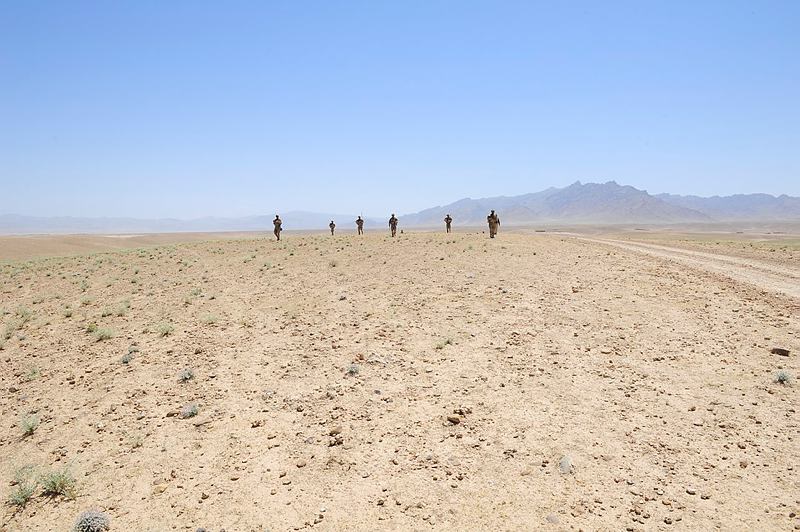Last week I attended a climate change and strategic military geography seminar held at Russell Offices in Canberra on the impact of climate change on Defence. The seminar was convened by the Global Change and Strategic Military Geography VCDF Group, that’s held similar events before. The two speakers were Helen Cleugh, leader of the CSIRO’s earth systems hub, and Will Howard, assistant director at Office of the Chief Scientist. Howard addressed another carbon issue that’s largely independent of global warming: the problem of acid oceans. The core messages from the two presentations were that changes to the climate are already underway, that these changes don’t respect national boundaries, and that Defence isn’t immune from the impacts of climate change. (The presentations delivered by Cleugh and Howard can be accessed online, here and here (PDF).)
Water and food scarcity, flooding, increased natural disasters, atmospheric changes, ocean acidification and increased costs will impact on many aspects of Defence’s business.
Climate change is having a multi-faceted effect on many states, and it’s interacting with other political, social and economic problems.
Livelihood insecurity is a likely result of climate change in our broad region. There’ll be more extreme weather events and volatility in the prices and availability of food, because climate variability disrupts food production.
There’ll be possible increased tension over trans-boundary water resources and sea-level rise will threaten the viability of low-lying areas, with the potential for displacement.
I’ve previously examined some of these climate risks to our military and law enforcement communities. I’ve also considered the broad environmental security challenges posed by ocean acidification.
Some of the implications for Defence emerged from the recent VCDF Group sponsored seminar.
There’s threat multipliers posed by a changing climate. These risks alter the roles and missions that our military undertakes as a result of the physical alteration of the operating environment, as well as changes to the nature, frequency and distribution of conflict.
Risks of rising temperatures relate to the impact on the health of our 80,000 military personnel (both full and part-time reservists). A report released last Thursday by the Academy of Science looks at the health threats posed by climate change.
Imagine the impact on daily training routines or military exercises if temperatures increased by two degrees by mid-century, or as high as five degrees by the end of the century.
Sea level rises, increasing temperatures, extreme heat waves and longer, more intense droughts also portend changes to the way Defence manages and operates its vast estate.
Defence infrastructure has been largely designed and built on the assumption of a stable climate with known variability.
Defence will require a more strategic approach to range management: understanding how ranges will be affected by climate change and pinpointing areas of high risk. There’ll need to be closer engagement between Defence and our emergency services, especially rural fire services.
Last week’s seminar moved the issue of climate security and Defence forward: both speakers made it clear that the topic’s worthy of high level Defence attention.
These kinds of seminars help Defence to identify and address the risks associated with climate change. But there’s also value in two-way communication: Defence’s approach to contingency planning and thinking about the unexpected also benefits our climate science community.
The take-away message for me was the need for Defence to keep pressing on the issue; a business as usual approach to climate change and its impacts on Defence isn’t an option. Defence should appoint a senior military leader to act as a single strategic voice for climate change national security issues.


